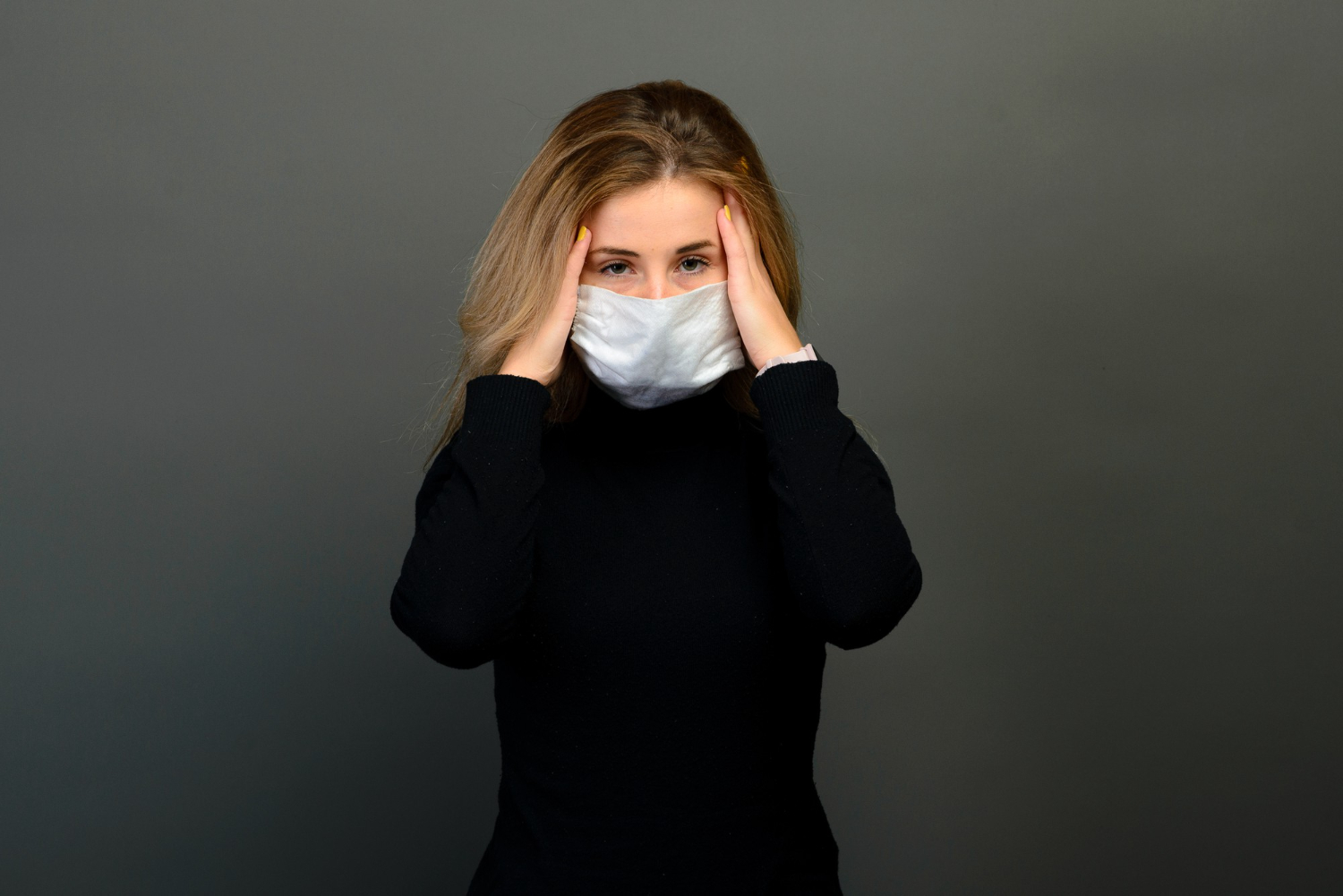
Covid Anxiety and Depression: A Comprehensive Overview

Anxiety & Depression | May 6, 2023 | BY Sozo Centers
The COVID-19 pandemic was a devastating experience for many. We have been grieving for lost lives, jobs, and businesses, all while battling to stay away from debilitating health concerns within the four walls of our homes. Staying at home sounds great to the introvert. However, the pandemic has had a psychological effect on the people.
There are still people out there who are feeling lonely, vulnerable, and frustrated for physical, emotional, and financial reasons. They also include the ones who did not experience personal loss but had to go through disoriented daily schedules, cancellations of celebrations, and challenges in in getting from here to there.
As the pandemic has begun to subside, there lies a big responsibility to identify and cure mental health concerns for the ones who were impacted.
If you or your loved ones are among those who are still experiencing anxiety and depression since the pandemic, know that you aren’t alone!
Tracy D Vannorsdall, Ph.D., a neuropsychologist has shared her insights on the effect of the COVID-19 pandemic on depression and anxiety, what to expect, and the therapies available to help the ones in need.
Navigating the Pandemic: Who is at Risk?
Research reports identify the fact that the pandemic has caused a certain level of distress. Vannorsdall also adds that there has been a substantial increase in emotional pain, depression, and anxiety among people at large.
More patients are seen dealing with mental health issues by increased alcohol consumption, disoriented sleep cycles, and insomnia. All these help in disrupting emotions and will contribute their part in shattering moods and overall creating mental uneasiness.
Among these people, the ones with a previous history of mental health vulnerabilities and physical health concerns are particularly prone to falling into depression and anxiety. Vannorsdall identified a pattern that occurred during the waves of the COVID-19 surge. She says that with the increase in COVID surge, anxiety and depression were evidently found to exhibit an uptick.
However, amidst the chaos, according to Vannorsdall, there are still grounds to maintain optimism.
Mental health can ultimately benefit if the patient possesses a certain level of control, a sense that they can be held accountable to change their reality and situation. As they gather more knowledge about their own situation and are educated on ways to maintain self-care, people may start to feel that they aren’t alone in this and can seek help for their health needs.
Fighting Depression and Anxiety during Pandemic: 4 Ways to Know
Anxiety and depression can get serious, in some cases fatal. But that doesn’t rule out the fact that they can be diminished. Vannorsdall has brought about 4 ways that could help with the well-being of your mental health and keeps negative feelings from taking over.
- Follow a daily routine
One of the major causes of why people fell into depression as the pandemic began was the lack of routine in their daily lives. When compared to 2020, people are now more productive being at home and also have attained a pattern of daily routine for work and study.
Ones who still find it challenging to regain structure in their daily life can take small and easy steps to find that sense of balance that they had lost. Here are some examples of routine: getting up at the same time every day, showing up for work/school, and having one productive activity as a goal to be accomplished by the end of the day. This way, everyone will feel a sense of achievement and will have more enthusiasm to get up the next day.
- Take proper care
Self-care is a strong weapon to beat mental illnesses. It keeps the mind-body connection tight, which is an essential factor for overall well-being. Some examples of proper care are prioritizing good sleep, physical activities like exercising, finding time to get that small dose of sunlight, fresh air, and good nutrition. These will attribute to mental clarity, energy, and happiness. Finding ways to safely socialize with friends and family can make a huge difference.
- Stay away from alcohol and drugs
Moderation is the key. Overusing drugs or alcohol in any form risks a higher opportunity for depression and anxiety.
- Find Help
If you or your loved ones are showing symptoms of a mental health disorder, it’s always advisable to seek help. And with the advent of telemedicine, things have become even easier. Help is always out there for the ones who seek it. Therapy can be conducted online using your phone or laptop.
Vannorsdall supports the growth of telehealth and it is the silver lining of the COVID-19 pandemic. The access to these services has ballooned during and after the pandemic for the patient’s convenience. People can now seek and consult healthcare professionals without actually being there physically. The convenience of telehealth cannot be underestimated.
In addition to this, there are the latest apps that help in tracking mood, sleep, anxiety, and noticeable patterns in behavior. This data is available to the patients themselves and could make a huge difference in the diminishing of their mental illness. The data from these apps can be shared with their therapist to add greater insight into the path to their wellbeing.
Does COVID-19 Infection Affect Mental Health?
The answer is, it might. Patients with long COVID have been found struggling to recover from the long-term effects of their infection and the treatment for the same. Vannorsdall provided care for such patients at the John Hopkins Post-Acute COVID-19 Team (JH PACT), by getting together with medical professionals from various specialties and disciplines.
The long-term effects of severe COVID-19 infection can be quite overwhelming and distressing. The long haul truckers have been left with organ damage, loss of physical and emotional well-being, along with persistent symptoms. All these have left them anxious and depressed.
Not to mention the seriousness of post-intensive care syndrome which leaves people devastated, panicked, and with disabling anxiety. So, treatment in an intensive care unit can also be a huge risk factor when it comes to the psychological effects of being in such an environment.
Researchers are looking into the inflammatory reactions that COVID-19 infection could potentially cause and the impact it may have on the brain. The physical changes caused by coronavirus could possibly manifest cognition issues in reasoning, remembering, and thinking.
The gnawing COVID symptoms could be a major challenge on how people’s perception towards speedy recovery varies. They exhibited a variety of symptoms when treated under the PACT group. There was an evident growth in the levels of anxiety and depression and a steep decline in cognitive abilities, all of which lasted for months.
The ultimate recovery path for COVID-19 isn’t laid out yet. But there are short-term interventions to help the survivors get through the challenges. These interventions are held even for people with severe physical changes and ongoing symptoms.
However, it was also found that the patients treated for severe COVID-19 symptoms had already lived their lives with anxiety and depression even before the pandemic. Vannnorsdall also added that “Having COVID allowed them to access the medical system, where they could be identified and treated.”
How Can I Help a Friend or Family in a Mental Health Crisis?
Everyone has rough moments where they feel depressed, uninspired, or anxious, especially when coping with the COVID-19 crisis. But some signs are very apparent, signs that one must never ignore:
- Discussing self-harm
- Hopelessness (thinking things won’t ever get better)
- getting rid of personal items
- Being incapable of carrying out one’s regular everyday tasks
If you notice these warning signs in someone you know, it may be time to take a step. It is not easy to help people with mental health issues to open up about their feelings and intervene in their thoughts. However, Vannorsdall has some suggestions:
- Identify the one area of a suffering person’s life that they truly value, such as their children, family, work, or any reason they believe improving their situation is worthwhile.
- Help them reframe their perception of mental issues and the treatments.
- Individuals can constantly remind themselves or those they care about that the mind and body are not two distinct things and emotional anguish has a biological foundation.
- A person with a mental health issue isn’t weak and deserves treatment just like they’d get for any physical pain.
Mental Health During COVID: When Will Things Improve?
The overall standpoint of the COVID crisis has begun to change, which in turn is bringing a positive impact on our collective well-being. Things have again started to feel the way it was before Covid as we have adapted to the changes, including learning and working from home, new daily routines, and established daily goals, ever since the pandemic began.
At first, there was a great deal we didn’t understand. Many folks experienced anxiety. We now understand that we can take steps to protect ourselves with immunizations and safety measures. The coronavirus no longer has complete control over us.

